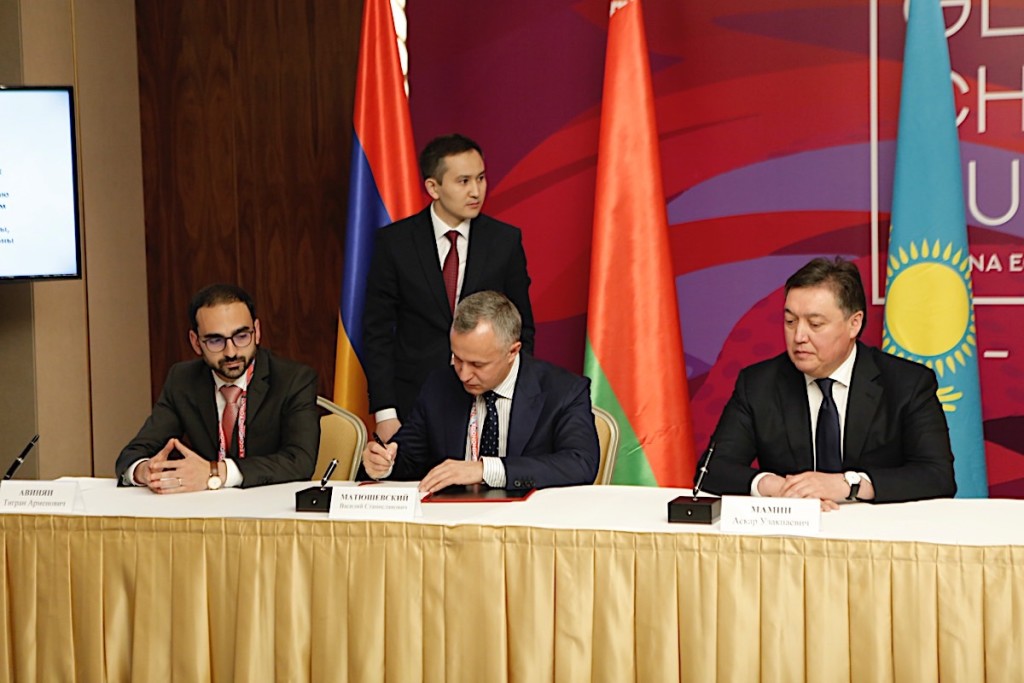ASTANA – The Eurasian Economic Union (EAEU) and Iran signed an interim agreement on a free trade zone May 17 during the Astana Economic Forum. Two years of negotiations resulted in a three-year arrangement to reduce import customs duties on approved goods.
“Signing the agreement between EAEU and Iran will create new ways for development and the first step to ensuring further integration of the country,” said Armenian Deputy Prime Minister Tigran Avinyan.
The agreement is based on World Trade Organisation (WTO) and international law rules that outline and facilitate trade procedures. It will primarily regulate applying sanitary and phyto-sanitary measures and technical barriers to trade, customs procedures and regulations for determining a product’s country of origin. As a result of the negotiations, Iran will provide tariff concessions on 246 goods and the EAEU on 175 products.
Kazakhstan and Iran have favourable mutual trade. Statistics show trade between the two states increased $170 million in the first three months of this year, a 70-percent hike compared to the same period in 2017.
Eurasian Economic Commission Board Chairperson Tigran Sargsyan noted on average custom duties on industrial goods for Iran are expected to decrease 7 percent, while a 3.3-percent decrease is anticipated for EAEU countries. For agricultural commodities, the average level of import duty rates for Iran will drop 19 percent; for EAEU states, 5 percent.
Kazakhstan exports beef, lamb, butter, chickpeas, lentils, peas, barley, corn, vegetable oils, pasta, confectionery, steel rolled products, rails, batteries, fittings, pipes and other goods to the Iranian market, and Iran will reduce import customs duties on the main items. First Deputy Prime Minister Askar Mamin, who represented Kazakhstan at the signing, noted Iran is a promising market for increasing Kazakh exports.
Customs duties will be reduced on Iranian goods including pistachios, dates, figs, raisins, shrimp, melons, oranges, lemons, limes, confectionery, some types of juices, paints and varnishes, dishes, detergents, carpets and plastic products. The EAEU provides only seasonal concessions on Iran’s leading export interest products, including apples, tomatoes and cucumbers, due to the absence of production from November-March.
Single custom tariff rates are low or close to zero within the EAEU. Iran’s exported goods, in addition to those of other developing countries, will receive preferential treatment, translating to a 25-percent import tax reduction.


